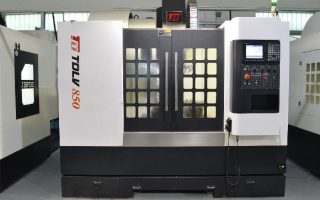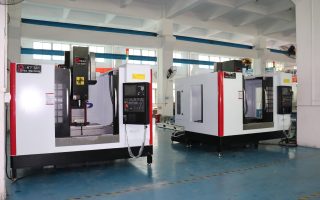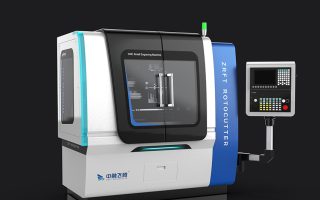
Introduction
The cabinetry industry has seen significant advancements in recent years, with the introduction of CNC (Computer Numerical Control) technology being one of the most transformative. CNC cabinets, produced using automated precision machinery, have become increasingly popular among homeowners, contractors, and designers. But the question remains: Are CNC cabinets good quality? This research paper delves into the various aspects of CNC cabinets, including their production process, material quality, durability, and overall value for consumers. We will also explore how CNC cabinets compare to traditional handcrafted cabinets and whether they meet the expectations of modern-day consumers.
Throughout this paper, we will provide a detailed analysis of the benefits and drawbacks of CNC cabinets, backed by industry data and expert opinions. Additionally, we will discuss how CNC cabinets have revolutionized the cabinetry industry and whether they are a viable option for those seeking high-quality, long-lasting cabinetry solutions. For those considering CNC cabinets for their next project, this paper will serve as a comprehensive guide to understanding their quality and performance. We will also include internal links to relevant resources to further enhance your understanding of CNC cabinets.
Before diving into the specifics, it is essential to understand the core concept of CNC technology and how it applies to cabinet manufacturing. CNC technology allows for the automation of the cutting, shaping, and assembly processes, resulting in highly accurate and consistent products. This precision is one of the key factors that sets CNC cabinets apart from traditional cabinets, which rely on manual craftsmanship. In the following sections, we will explore the various components that contribute to the quality of CNC cabinets, including the materials used, the production process, and the overall durability of the finished product.
The Production Process of CNC Cabinets
One of the primary reasons CNC cabinets are considered high-quality is the precision and efficiency of the production process. CNC machines are programmed to follow specific designs and measurements, ensuring that each piece of the cabinet is cut and assembled with exact accuracy. This level of precision is difficult to achieve with traditional handcrafting methods, where human error can lead to inconsistencies in the final product.
CNC machines use advanced software to create 3D models of the cabinets, which are then translated into cutting instructions for the machinery. This process eliminates the need for manual measuring and cutting, reducing the likelihood of mistakes and ensuring that each cabinet is produced to the exact specifications of the design. Additionally, CNC machines can work with a wide range of materials, including wood, MDF (medium-density fiberboard), and even metal, allowing for greater flexibility in design and material selection.
Another advantage of CNC technology is its ability to produce cabinets quickly and efficiently. Traditional cabinet-making methods can be time-consuming, especially for custom designs that require intricate detailing. In contrast, CNC machines can produce multiple cabinets in a fraction of the time, without sacrificing quality or precision. This increased efficiency not only reduces production costs but also allows for faster turnaround times, making CNC cabinets an attractive option for both consumers and manufacturers.
Material Quality in CNC Cabinets
The quality of the materials used in CNC cabinets is another critical factor in determining their overall quality. While CNC technology can produce highly precise and consistent cabinets, the durability and longevity of the finished product ultimately depend on the materials used. High-quality wood, MDF, and other materials are essential for ensuring that CNC cabinets can withstand the wear and tear of daily use.
Many manufacturers of CNC cabinets use premium-grade materials, such as solid wood or high-quality MDF, to ensure that their products are both durable and aesthetically pleasing. Solid wood is often preferred for its natural beauty and strength, while MDF is a popular choice for its affordability and resistance to warping and cracking. In some cases, CNC cabinets may also incorporate metal components, such as hinges and drawer slides, to enhance their durability and functionality.
It is important to note that not all CNC cabinets are created equal, and the quality of the materials used can vary significantly between manufacturers. Consumers should carefully research the materials used in the cabinets they are considering, as lower-quality materials can result in cabinets that are prone to damage and wear over time. However, when high-quality materials are used, CNC cabinets can offer exceptional durability and longevity, making them a worthwhile investment for homeowners and contractors alike.
Durability and Longevity of CNC Cabinets
Durability is one of the most important factors to consider when evaluating the quality of CNC cabinets. Cabinets are subjected to daily use, and they must be able to withstand the rigors of opening and closing, as well as exposure to moisture, heat, and other environmental factors. CNC cabinets, when made from high-quality materials and constructed with precision, are known for their durability and ability to stand the test of time.
The precision of the CNC production process ensures that each component of the cabinet fits together perfectly, reducing the likelihood of weak joints or structural issues. Additionally, CNC cabinets often feature reinforced corners and edges, which further enhance their strength and durability. This level of craftsmanship is difficult to achieve with traditional handcrafting methods, where inconsistencies in the construction process can lead to weak points in the cabinets.
In terms of longevity, CNC cabinets are designed to last for many years with minimal maintenance. The use of high-quality materials, combined with the precision of the CNC production process, ensures that these cabinets can withstand the wear and tear of daily use without losing their structural integrity or aesthetic appeal. For homeowners and contractors looking for long-lasting cabinetry solutions, CNC cabinets are an excellent choice.
Comparing CNC Cabinets to Traditional Cabinets
When comparing CNC cabinets to traditional handcrafted cabinets, several key differences become apparent. One of the most significant advantages of CNC cabinets is their precision and consistency. Traditional cabinets, which are made by hand, are subject to human error, and even the most skilled craftsmen can produce cabinets with slight variations in size and shape. In contrast, CNC cabinets are produced using automated machinery, ensuring that each cabinet is identical to the next.
Another advantage of CNC cabinets is their cost-effectiveness. Because CNC machines can produce cabinets quickly and efficiently, manufacturers can offer these cabinets at a lower price point than traditional handcrafted cabinets. This makes CNC cabinets an attractive option for budget-conscious consumers who still want high-quality, durable cabinetry.
However, some consumers may prefer the unique, handcrafted look of traditional cabinets, which can feature intricate detailing and custom designs that are difficult to replicate with CNC technology. Additionally, traditional cabinets are often made from solid wood, which some consumers may view as a higher-quality material than MDF or other materials commonly used in CNC cabinets. Ultimately, the choice between CNC cabinets and traditional cabinets comes down to personal preference and budget considerations.
Conclusion
In conclusion, CNC cabinets offer a high-quality, durable, and cost-effective solution for homeowners and contractors alike. The precision and efficiency of the CNC production process ensure that these cabinets are consistent in size and shape, while the use of high-quality materials ensures their durability and longevity. While some consumers may prefer the handcrafted look of traditional cabinets, CNC cabinets are an excellent choice for those seeking a modern, reliable cabinetry solution.
Whether you are renovating your kitchen, bathroom, or any other space in your home, CNC cabinets are worth considering for their quality, affordability, and long-lasting performance. With the right materials and craftsmanship, CNC cabinets can provide a beautiful and functional addition to any home. For more information on CNC cabinets and their benefits, be sure to explore additional resources and expert opinions.




